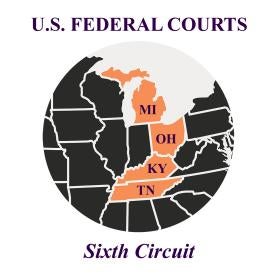Judge Thapar issued a short and sweet concurrence today that cautioned against overly relying on agency guidance that has not gone through notice and comment. The respondent in Huscoal, Inc. v. Director, __ F.4th __ (6th Cir. 2022), had filed a claim for survivor’s benefits under the Black Lung Benefits Act. She argued that her husband had died because of his coal-mining job at Huscoal, Inc. The Administrative Law Judge (ALJ) granted the respondent’s claim and the Benefits Review Board affirmed. The Sixth Circuit affirmed, too, in an opinion written by Judge Gilman and joined by Judge Griffin and Judge Thapar.
The sole issue at the Sixth Circuit was whether substantial evidence supported the ALJ’s conclusion that the respondent’s husband suffered from an illness that arose “at least in part” out of his coal-mine employment. The husband’s employer and the employer’s insurance carrier argued “no,” pointing to the husband’s 60-year smoking history. The employer and carrier also faulted the ALJ for, in their view, improperly relying on a doctor’s opinion based on (again in their view) inaccurate information.
The Sixth Circuit held that substantial evidence supported the ALJ’s decision, including the ALJ’s decision to credit the doctor’s opinion. In some key parts of its decision, however, the ALJ relied on the agency’s preamble to the relevant regulations. That is what Judge Thapar took issue with in his concurrence.
Judge Thapar noted at the outset that he joined the majority’s opinion in full. Judge Thapar nonetheless found it “concerning” that the ALJ had “entirely discounted the testimony of two experts based on one line from a guidance document–the DOL’s Preamble to the Black Lung Benefits Act regulations.” The petitioners did not “challenge that reasoning” so Judge Thapar joined the majority opinion in full. But Judge Thapar wrote separately to explain the reasons for his concern.
First and foremost, “the Preamble didn’t go through notice and comment.” Notice and comment matters, explained Judge Thapar, because it “guard[s] against underinformed agency action and protect[s] regulated parties from unanticipated changes to their rights and duties.” As a result, treating the preamble as binding “would rob the public of the input and warning the law demands.”
That was especially troublesome here because, according to Judge Thapar, the preamble at issue undermined the black-lung regulations. And, unlike the preamble, the regulations had gone through notice and comment, so “contradicting their mandate [was] unlawful.”
In concluding, Judge Thapar reiterated that had the petitioners “argued on appeal that the ALJ’s order read the [p]remable as binding,” the court would have needed “to more closely scrutinize the ALJ’s reasoning.” But the petitioners had only raised a substantial-evidence challenge. And Judge Thapar agreed with the majority that the “ALJ’s decision passe[d] evidentiary muster.”
Although a relatively short concurrence, Judge Thapar’s opinion offers much to think about. As probably most federal practitioners know, interpreting agency regulations is a standard feature of federal practice and has been for a long time. How much weight to assign agency guidance, prefatory language, commentary, etc., that itself has not gone through notice and comment is an issue that often comes up. Judge Thapar’s concurrence is a good reminder that even if such material can be illuminating at times, at the end of the day, it didn’t go through notice and comment. So, one should never reflexively assume it accurately states the law. The petitioners in this case learned that the hard way.




 i
i


